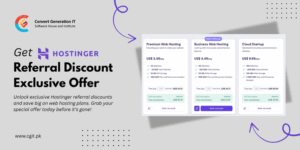
What Is Custom Application Development? Explained
What Is Custom Application Development and Why It Matters Today? Custom application development refers to the process of designing and building software applications tailored specifically to meet the unique needs of a business or organization. Unlike off-the-shelf solutions that offer one-size-fits-all functionality, custom apps are purpose-built, ensuring full alignment with business goals, workflows, and user demands.
In today’s competitive digital landscape, businesses must adapt quickly and operate efficiently. Custom apps help organizations innovate faster, improve user experiences, and streamline operations with features crafted specifically for them.
1. Custom Apps vs Off-the-Shelf SoftwareCustom
Application Development vs Off-the-Shelf Software: What’s Right for You?
When choosing between a custom application and an off-the-shelf product, understanding the differences is crucial:
| Feature | Custom Application | Off-the-Shelf Software |
| Personalization | Fully tailored | Limited customization |
| Cost | Higher upfront | Lower initial cost |
| Scalability | Built for future growth | Limited by vendor |
| Competitive Advantage | High | Low to moderate |
| Ownership | Full ownership | Vendor-dependent |
While off-the-shelf apps are quicker to deploy, custom applications provide flexibility, control, and scalability. Businesses looking for long-term efficiency often prefer the custom route.
2. Key Benefits of Custom Application Development
Why Businesses Prefer Custom Apps: 7 Proven Advantages
Custom software development offers several powerful benefits:
- Tailored Solutions – Built specifically for your business processes and goals.
- Scalability – Easily adapt the application as your company grows.
- Enhanced Security – Custom apps reduce vulnerabilities common in widely-used software.
- Integration Ready – Seamlessly connects with your existing tools and platforms.
- Increased Productivity – Automates manual tasks and streamlines workflows.
- Cost Efficiency in the Long Run – Fewer licensing and update costs over time.
- Competitive Edge – Offers unique features that competitors don’t have.
Businesses that prioritize innovation and flexibility often gain a distinct edge with custom applications.
3. Real-World Use Cases of Custom Applications
5 Powerful Use Cases of Custom Applications for Business Growth
Custom applications are being used across industries to solve specific challenges. Here are five real-world examples:
- Customer Portals – Create personalized dashboards for clients with order tracking, support, and communication tools.
- Employee Management Tools – Automate HR processes like attendance, payroll, and leave requests.
- Inventory Management Systems – Track stock in real-time, automate reordering, and generate performance reports.
- Sales CRMs – Tailored to unique sales cycles with advanced lead tracking and reporting.
- Internal Communication Tools – Custom intranets or chat systems designed around your team’s workflow.
These examples highlight how custom apps improve efficiency and enhance customer experiences.
4. How Custom Applications Are Developed: Step-by-Step Process
A Complete Guide to Building Custom Applications from Scratch
Creating a custom application involves several critical stages:
1. Discovery & Planning
Understanding your business goals, user needs, and technical requirements.
2. UI/UX Design
Wireframing and designing user-friendly interfaces tailored to your brand.
3. Development
The actual coding phase where front-end and back-end systems are built.
4. Testing
QA testing to find and fix bugs, ensure performance, and verify usability.
5. Deployment
Launching the application in your live environment.
6. Maintenance & Support
Ongoing improvements, updates, and support to keep the app running smoothly.
This step-by-step approach ensures a reliable and efficient custom software solution.
5. Cost of Custom App Development
How Much Does Custom Application Development Cost in 2025?
Costs in 2025 vary depending on scope, technology, and developer rates. On average:
| App Type | Estimated Cost Range |
| Basic Web App | $8,000 – $20,000 |
| Medium-Sized Business App | $20,000 – $60,000 |
| Enterprise Solution | $60,000 – $150,000+ |
Key Factors Affecting Cost:
- App complexity and number of features
- Design requirements
- Third-party integrations
- Development team (in-house vs outsourced)
- Timeframe
Budgeting Tip:
Start with an MVP (Minimum Viable Product) to reduce initial investment while testing your idea.
6. Choosing the Right Development Approach
In-House vs Outsourced Custom App Development: What to Consider?
Both development approaches have pros and cons:
| Aspect | In-House | Outsourced |
| Control | Full control | Shared responsibility |
| Cost | High salaries, overhead | Cost-effective packages |
| Talent Pool | Limited | Access to global experts |
| Speed | Can be slower | Often faster delivery |
For startups or SMBs, outsourcing is often the smarter choice for affordability and scalability. For enterprises, in-house teams offer tighter control.
7. Common Challenges in Traditional App Development
Why Traditional App Development Fails—and How Custom Apps Solve That
Traditional app development often faces issues like:
- Misalignment with business goals
- Over-complicated workflows
- Low adoption due to poor UX
- Security vulnerabilities
- Rigid architectures
Custom application development addresses these problems by:
- Ensuring business-aligned features
- Creating user-friendly interfaces
- Prioritizing security from the ground up
- Supporting agile and scalable architectures
8. Key Considerations Before Building a Custom App
7 Things to Know Before Starting Your Custom Application Project
- Define clear objectives and KPIs
- Know your user personas
- Choose the right tech stack
- Estimate realistic timelines and budget
- Ensure proper security protocols
- Plan for post-launch support
- Hire experienced developers or agencies
Proper planning is critical to reducing risk and maximizing ROI from your custom app project.
Build Smarter. Scale Faster. Go Custom.
Custom application development isn’t just a tech investment — it’s a strategic business decision. Whether you’re aiming for efficiency, security, scalability, or unique user experiences, a tailored solution can offer unmatched value compared to generic software.
If you’re planning to build a custom business app, now is the time to align your digital tools with your real-world goals.
FAQs on Custom Application Development
Custom app development usually takes 2 to 6 months depending on the features, design, and complexity. For urgent needs, starting with an MVP is best — it lets you launch quickly and improve based on user feedback.
No, small and medium businesses benefit greatly too. Custom apps help automate manual work, improve team productivity, and scale operations without paying for unnecessary features found in generic software.
Yes, custom apps can connect with your CRM, ERP, payment gateways, and other tools. This saves you time, avoids double data entry, and creates a smooth, automated workflow across your business systems.
Yes, they offer stronger security because they’re built privately for your business. You can control access, encrypt sensitive data, and fix issues instantly — keeping your data protected from common cyber threats.
Almost every industry uses custom apps — healthcare, retail, logistics, finance, education, and more. If your business has unique processes or wants to stand out from competitors, a custom app is the right solution.
You may also like

Convert Generation IT LLC Now Operating in the USA

Freelancing SEO Services on Fiverr to Make Sites Visible

Get Hostinger Referral Discount – Exclusive Offer

